News archive
On this page you can search for older news. Choose a topic, type of news or enter your own keyword to filter out news.
View compact

The StratNeuro Bridging Grant at the consolidator level is a funding initiative where StratNeuro awards up to two consolidator level grants to support outstanding researchers in the field of neuroscience at Karolinska Institutet.
News

Researchers at Karolinska Institutet have found that the perception of one's own body is largely based on the brain making guesses based on probability theory. The results are shown in a study recently published in the journal eLife.
News
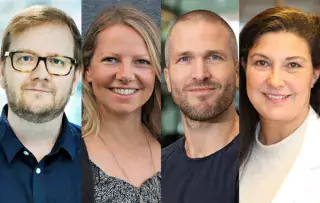
Four research projects coordinated from Karolinska Institutet have been awarded project grants by Knut and Alice Wallenberg Foundation (KAW) in 2022. This means that, over SEK 135 million are allocated to KI research in the fields of immunology, neuroscience, and stem cell biology.
News

StratNeuro has awarded SEK 2,000,000 in start-up grants to 4 international researchers who are establishing their groups at Karolinska Institutet, after receiving faculty-funded Assistant Professor (“biträdande lekor”) positions.
News
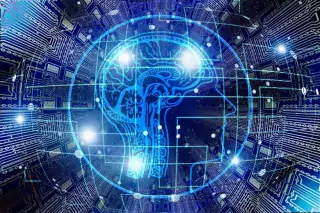
Karolinska Institutet has signed a collaboration agreement with the European research infrastructure EBRAINS, which offers digital tools and services for research into the brain. The purpose of this agreement is to give KI's researchers access to new digital technology and state-of-the-art resources, as well as the opportunity to contribute to the further development of the area of neuroscience within the EU.
News

Research at Karolinska Institutet in collaboration with the Swedish Armed Forces and NATO could lead to more people surviving gun violence and provide answers on how to stop severe bleeding.
News

People with long-term neuropathic pain took significantly fewer sick days from work after treatment with spinal cord stimulation, according to a study by researchers at Karolinska Institutet published in the journal PAIN. The findings suggest that the treatment has the potential to increase life quality for chronic pain patients and reduce costs to society, the researchers say.
News
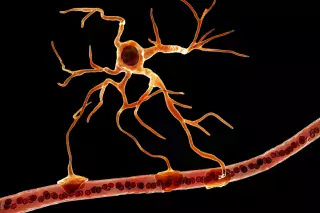
Bacterial meningitis is a life-threatening infectious disease of the brain that leaves many survivors with long-lasting neurological impairments. Now, researchers at Karolinska Institutet in Sweden show in a study on rats that the brain’s tool for waste clearance, the glymphatic system, malfunctions during bacterial meningitis, causing a buildup of toxic garbage that damages brain cells. The findings are published in the journal mBio.
News

For a drug to be effective and not harmful it needs to be administered at the right dosage. Certain enzymes in the body eliminate drugs, and the activity of these enzymes vary between individuals. Researchers at the Max Planck Institute for Evolutionary Anthropology in Germany and Karolinska Institutet in Sweden have studied two enzymatic variants which eliminate drugs less efficiently and show that the these enzyme variants are inherited from Neandertals.
News

On 18-20 May 18 2022 we were excited to finally host the annual StratNeuro retreat at Runö in Åkersberga. This year's retreat was somewhat special. Many were eager to meet again, and the organisers worked hard to make this meeting a productive and memorable one.
News

StratNeuro aims to fund junior researchers to strengthen groundbreaking research in the field of neuroscience. In the 2022 call for StratNeuro postdoctoral funding, we received 30 proposal from 9 KI departments.
News
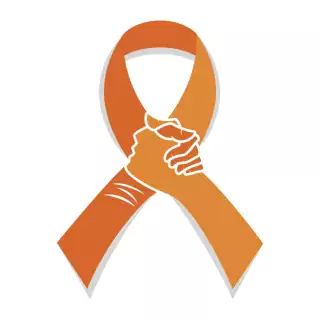
Researchers at Karolinska Institutet in Sweden might have found an explanation for why people with self-injury behaviour generally feel less pain than others. The key seems to be a more effective pain-modulation system, a discovery that can benefit people seeking help for their self-harm. The findings are published in the journal Molecular Psychiatry.
News
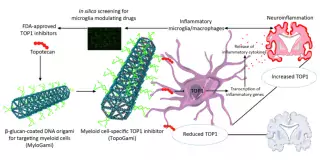
The repurposing of FDA-approved drugs for alternative diseases is a faster way of bringing new treatments into the clinic. Researchers at Karolinska Institutet have repurposed a cancer drug for treatment of neuroinflammatory diseases such as multiple sclerosis. A novel drug carrier was also developed to facilitate drug delivery to target myeloid cells. These pre-clinical findings are described in a paper in the journal EMBO Reports.
News

A new study from the Department of Neuroscience at Karolinska Institutet characterises a novel neuronal population in the basal ganglia, responsible for the interaction between two types of neurotransmitters, GABA and acetylcholine. The study was recently published in Cell Reports.
News

Researchers at Karolinska Institutet have studied how the screen habits of US children correlate with how their cognitive abilities develop over time. They found that the children who spent an above-average time playing video games increased their intelligence more than the average, while TV watching or social media had neither a positive nor a negative effect. The results are published in the journal Scientific Reports.
News

The Stategic Research Area Neuroscience, StratNeuro, announces up to ten grants to support postdoctoral researchers at Karolinska Institutet. This StratNeuro funding aims to support outstanding postdoctoral researchers in basic and clinical neuroscience.
News

StratNeuro has awarded SEK 1,000,000 in start-up grant 2022 to Enric Llorens, Arvid Guterstam and Jeroen Goos.
News

Researchers behind the science of how we move have been recognized with the The Brain Prize 2022. Ole Kiehn, from the Department of Neuroscience at Karolinska Institutet and at the University of Copenhagen, Denmark, is one of three neuroscientists receiving the world's largest prize for brain research, awarded on a yearly basis by the Lundbeck Foundation.
News
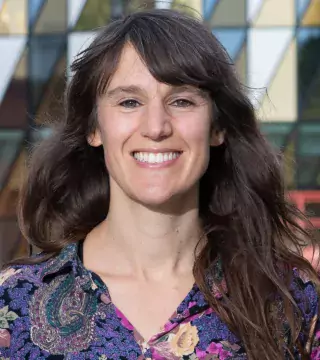
Caroline Ran, researcher at the Department of Neurosicence, has been awarded the Harold Wolff-John Graham Award in recognition of her outstanding achievements in headache research. The award, sponsored by the American Academy of Neurology (AAN), amounts to 1000 USD, plus 200 USD in subsistence allowance to speak at AAN's annual meeting in April 2022.
News
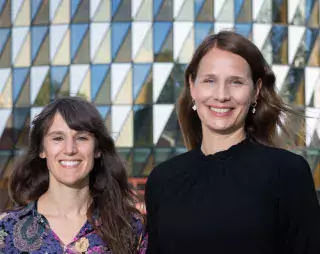
Thanks to a groundbreaking study, leading migraine scientists can better understand the biological basis of migraine and its subtypes and could speed up the search for new treatment of the condition, which affects over a billion individuals wordwide. The new findings, published in the journal Nature Genetics, uncovered more of the genetic architecture of migraine subtypes than was previously known.
News

The StratNeuro board has reviewed the neuroscience submissions to the SLL call “Kliniska Forskare” (2020) and decided to support Mikael Tiger with SEK 500,000, for his project entitled "Optimized treatment for depression: mechanisms of action and response markers and antidepressive effect versus side effects".
News

The bridging grant is a funding initiative where StratNeuro, and other strategic research areas (SFOs) at KI, award funding to promising researchers with outstanding scientific merits, giving them the opportunity to consolidate their research.
News

Understanding how the complex geometry of branching tissues take shape during embryonic development or the growth of any organisms has long been a fascinating subject. Neuroscientists at Karolinska Institutet, together with theoretical physicists from IST-Austria, have now combined live imaging in a zebrafish model system with analytical theory to uncover a generic design principle to predict 3D axon branching morphogenesis.
News

Her research focuses on hereditary brain diseases and, among other things, cluster headache, an extremely painful disease which comes in attacks. It is not known what causes the disease, and so far, there are no effective treatments.
News
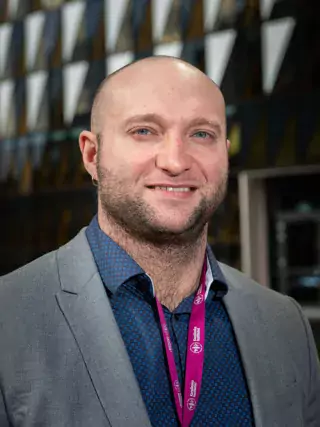
Federico Iovino, Assistant Professor and group leader at the Department of Neuroscience, Karolinska Institutet, has been recognised "World Expert" in the field "Streptococcus pneumoniae” by Expertscape, a website that objectively ranks physicans, researchers and institutions by their expertise in more than 29,000 biomedical topics.
News

The 2021 Nobel Prize in Physiology or Medicine is about how people can feel temperature and touch. The discoveries explain basic functions in our lives and have opened doors to new treatments for pain, for example. We take it for granted, the fact that we can feel an icy wind, a hot plate or a hug, but how this actually works was unknown until it was discovered by the Nobel Laureates, a discovery made not so long ago.
News
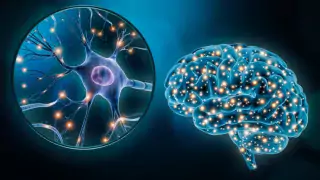
Researchers at Karolinska Institutet have participated in a large international research project that has identified all cell types in the motor cortex, the part of the brain that controls movement. The research has resulted in a detailed cell atlas presented in a large special package of scientific articles in Nature today. The long-term goal of the collaboration is to create a cell atlas of the whole brain in order to increase knowledge of brain diseases and contribute to better treatments.
News
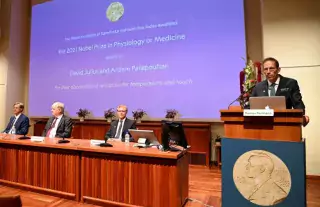
The Nobel Prize in Physiology or Medicine 2021 has been awarded jointly to David Julius and Ardem Patapoutian “for their discoveries of receptors for temperature and touch.”
News

Academics from all 18 higher education institutions in Stockholm have been invited to discuss future global challenges from new perspectives, extending past the traditional academic boundaries at the Stockholm Explorative Talks on 23 september 2021 at the Royal College of Music (KMH) in Stockholm.
News
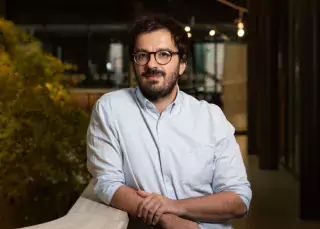
The Nature Communications Editors’ Highlights webpage showcases a small number of articles recently published in the journal that the editors believe are particularly interesting or important, on Multidisciplinary, Life Science and Physical Sciences research.
News
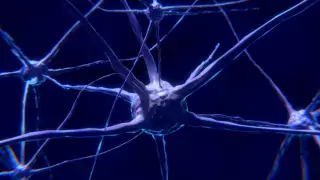
Researchers at Karolinska Institutet, the German Center for Neurodegenerative Diseases (DZNE) and Columbia University Irving Medical Center have found an unexpected link between spinal locomotor network activity and adult neurogenesis in the adult zebrafish spinal cord. The study has recently been published in Nature Communications.
News
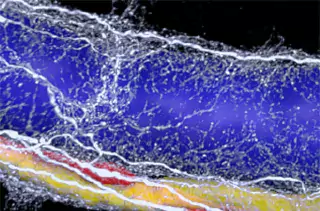
With the application of a novel three-dimensional imaging technology, researchers at Karolinska Institutet have discovered that one portion of the autonomic nervous system in the liver undergoes severe degeneration in non-alcoholic fatty liver disease. The study, which is conducted in mice and human liver tissue, shows that the degeneration of nerves is correlated with the severity of liver pathology. The results are being published in the journal Science Advances.
News

Andrea Carmine Belin, researcher at the Department of Neuroscience, has been nominated and elected to the International Headache Society's Board of Directors for a two-year period (2021-2023), which will also be announced in conjunction with the Members' Annual Meeting on September 9, 2021.
News
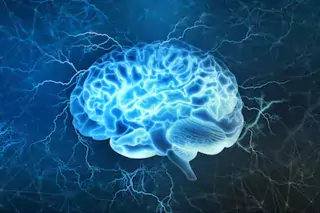
The Department of medical biochemistry and biophysics (MBB) receives research grants of SEK 9.8 million from the Swedish Brain Foundation. Five projects at the department receive grants from the non-profit foundation.
News

StratNeuro awards a total of 18 MSEK to six Collaborative Neuroscience Research Projects. 41 letters of intent from across 12 departments were received, of which the top ranking 1/3 (ranging seven departments at KI), were invited to submit full proposals for a second round of evaluation by an external evaluator panel.
News

Young children who practice visual working memory and reasoning tasks improve their math skills more than children who focus on spatial rotation exercises, according to a large study by researchers at Karolinska Institutet in Sweden. The findings support the notion that training spatial cognition can enhance academic performance and that when it comes to math, the type of training matters. The study is published in the journal Nature Human Behaviour.
News

Hi there, Haohao Wu, PhD student at the Department of Neuroscience at Karolinska Institutet! You will defend your thesis entitled "The molecular basis of the development and diversity of proprioceptive neurons : a story of surviving and thriving" on 21 May 2021.
News

Low levels of serotonin in the brain are seen as a possible cause of depression and many antidepressants act by blocking a protein that transports serotonin away from the nerve cells. A brain imaging study at Karolinska Institutet now shows that the average level of the serotonin transporter increased in a group of 17 individuals who recovered from depression after cognitive behavioural therapy. The results are published in the journal Translational Psychiatry.
News

StratNeuro has awarded SEK 1,000,000 in start-up grant to Kristoffer Månsson, who was granted a 2020 faculty-funded Assistant Professor (biträdande lektor) position.
News
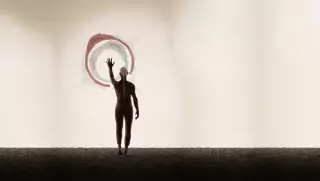
The causes of the serious muscle disease ALS still remain unknown. Now, researchers at Karolinska Institutet and KTH Royal Institute of Technology, among others, have examined a type of cell in the brain blood vessels that could explain the unpredictable disease origins and dynamics. The results indicate a hitherto unknown connection between the nervous and vascular systems. The study, published in Nature Medicine, has potential implications for earlier diagnoses and future treatments.
News

Researchers from Karolinska Institutet, Karolinska University Hospital, and The Wenner-Gren Institute at Stockholm University have conducted research within the field of bacterial meningitis and found how bacteria interact with neurons causing neuronal cell death. The results of their study, which started in 2019, were recently published in PloS Pathogens.
News
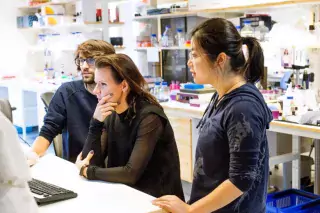
Nicolas Gustavo Guyon, PhD student at the Department of Neuroscience at Karolinska Institutet is co-author of an article recently published in the Journal of Neuroscience which shows how dysfunctional inhibition impairs neuronal activity ability to synchronize, yet paradoxically boosts brain oscillations usually correlated with cognition.
News
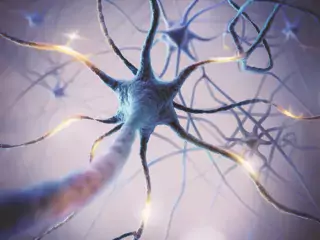
Researchers at Karolinska Institutet explain that the neurotrophin brain-derived neurotrophic factor (BDNF) binds to the receptor tropomyosin receptor kinase B (trkB) present on the surface of many neurons, triggering signaling pathways critical to the maturation and growth of neurons during development. In their latest article however, they show that BDNF-trkB signaling also plays a significant role in the functioning of the adult brain.
News

Researchers at Karolinska Institutet have revealed a large diversity of proprioceptive neurons and unveiled a new type of plasticity suggesting neuronal individuality in the nervous system to adapt its performance to changing environment. The article was recently published in Nature Communications.
News
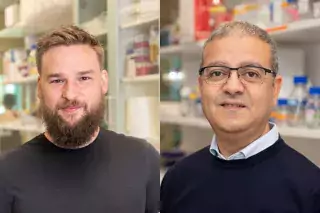
Researchers at Karolinska Institutet have revealed a central proprioceptive organ built directly into the central nervous system that acts as an inner movement sensor. The article was recently published in the Scientific Journal Neuron.
News

The StratNeuro board has reviewed the neuroscience submissions to the SLL call “kliniska forskare” (2020) and decided to support the two researchers at Karolinska Institutet with SEK 500,000 each.
News

StratNeuro has awarded SEK 1,000,000 in start-up grant to Maya Ketzef receiving a 2020 VR 'starting grant and Sara Garcia-Ptacek receiving a 2020 faculty-funded Assistant Professor position.
News

Mattias Günther is the new Principal Investigator of the research group Experimental Traumatology, at the Department of Neuroscience, taking over from Mårten Risling, who will continue to work in the field of neurotrauma.
News
Audience: Medarbetare
Neurovetenskap, Experimentell Traumatologi
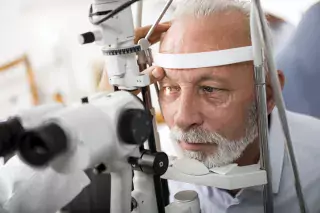
In the search for new ways to treat the incurable eye disease glaucoma, researchers at Karolinska Institutet and St. Erik Eye Hospital have discovered more clues as to its pathogenesis. A new study shows how metabolic disturbance of the neurons coincide with raised pressure in the eye. In animal and cell models, rapamycin and pyruvate treatments were shown to have a protective effect. The study is published in the journal PNAS.
News
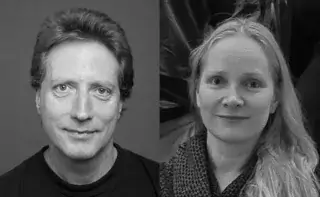
Researchers at Karolinska Institutet have found unique synaptic connectivity patterns of neurons in the External Globus Pallidus in mice. This may hold the key to understanding how information is processed by the basal ganglia in health and disease. The article was recently published in Neuron.
News
